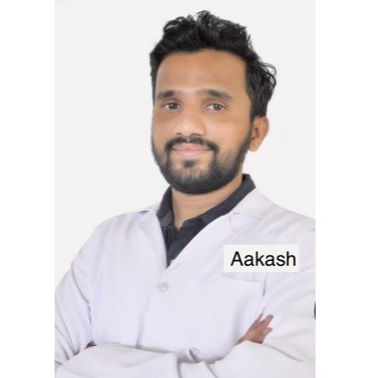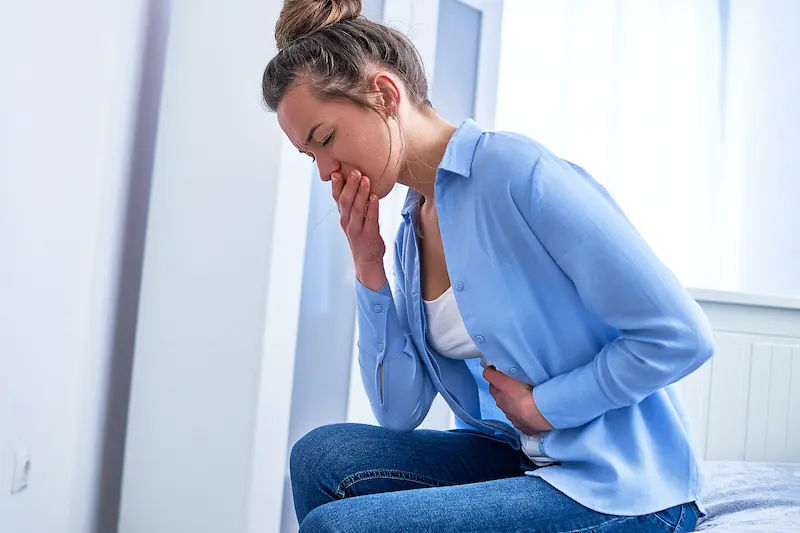Food Poisoning Symptoms, Causes and Treatment
Know about food poisoning symptoms, causes, sources of contamination and treatment options and how to prevent it.

Written by Dr. J T Hema Pratima
Reviewed by Dr. Rohinipriyanka Pondugula MBBS
Last updated on 13th Jan, 2026

Introduction
Food poisoning is a common but unpleasant experience that occurs when you consume contaminated food or water. It can make you feel extremely sick, but the good news is that it’s usually temporary and treatable. In this article, we’ll help you understand the symptoms, causes, and treatment options for food poisoning, along with some helpful prevention tips.
What is Food Poisoning?
Food poisoning, also known as foodborne illness, happens when harmful bacteria, viruses, parasites, or toxins enter your body through contaminated food or drinks. These germs can multiply in improperly stored, undercooked, or unclean food, leading to digestive discomfort and other symptoms.
Consult a General Physician for Personalised Advice
Common Symptoms of Food Poisoning
Symptoms can appear within hours or even days after eating contaminated food.
The most common signs include:
Nausea and vomiting
Diarrhoea (sometimes bloody)
Stomach cramps and pain
Fever and chills
Weakness and fatigue
Loss of appetite
Headache
In severe cases, food poisoning can lead to dehydration, dizziness, and even organ damage. If symptoms persist for more than a few days or include high fever, bloody stools, or extreme weakness, seek medical help immediately.
What Causes Food Poisoning?
Several germs can cause food poisoning, but the most common culprits are:
1. Bacteria – Salmonella, E. coli, Listeria, and Campylobacter are often found in raw meat, eggs, unpasteurized milk, and contaminated vegetables.
2. Viruses – Norovirus and Hepatitis A can spread through contaminated food or poor hygiene.
3. Parasites – Giardia and Toxoplasma can be present in undercooked meat or contaminated water.
4. Toxins – Some foods (like certain mushrooms or spoiled fish) contain natural toxins that cause poisoning.
Common Sources of Contamination
Sources of contamination include:
Undercooked meat, poultry, or seafood
Raw eggs or unpasteurized dairy products
Unwashed fruits and vegetables
Food left at room temperature for too long
Cross-contamination (using the same cutting board for raw meat and vegetables)
How is Food Poisoning Treated?
Most cases of food poisoning resolve on their own within a few days. Here’s how you can manage mild symptoms at home:
1. Stay Hydrated
Vomiting and diarrhoea can lead to dehydration. Drink plenty of fluids like:
Water
Oral rehydration solutions (ORS)
Coconut water
Herbal teas
Avoid caffeine, alcohol, and sugary drinks, as they can worsen dehydration.
2. Eat Bland Foods
Once nausea subsides, try easy-to-digest foods like:
Bananas
Rice
Applesauce
Toast (BRAT diet)
Boiled potatoes
Avoid spicy, fatty, or dairy-heavy foods until your stomach settles.
3. Rest
Your body needs energy to fight off the infection, so take it easy and get plenty of rest.
4. Over-the-Counter Medications
Medicines like loperamide (for diarrhoea) or antacids (for stomach pain) can help, but consult a doctor before using them, especially for children.
When to See a Doctor?
Seek medical attention if you experience:
High fever (above 101°F or 38.3°C)
Blood in vomit or stool
Severe dehydration (dry mouth, dizziness, little/no urination)
Symptoms lasting more than 3 days
Pregnancy, weakened immunity, or chronic illness
How to Prevent Food Poisoning?
Prevention is always better than a cure. Follow these food safety tips:
Wash Hands & Surfaces – Always wash hands before cooking and clean kitchen tools properly.
Cook Food Thoroughly – Use a food thermometer to ensure meat reaches safe temperatures.
Store Food Safely – Refrigerate perishables within 2 hours and avoid leaving food out for long.
Avoid Risky Foods – Be cautious with raw eggs, unpasteurized milk, and undercooked seafood.
Wash Fruits & Veggies – Rinse them well, even if you plan to peel them.
When to Consult a Doctor?
If your symptoms are severe or persistent, it’s best to consult a healthcare professional. At Apollo 24|7, you can book a quick online consultation with a doctor or schedule lab tests to check for infections. Early medical advice can prevent complications and speed up recovery.
Final Thoughts
Food poisoning is uncomfortable but usually short-lived. By staying hydrated, eating light, and following food safety practices, most people recover quickly. However, if symptoms worsen, don’t hesitate to seek medical help.
Consult a General Physician for Personalised Advice
Consult a General Physician for Personalised Advice

Dr. Rajib Ghose
General Physician/ Internal Medicine Specialist
25 Years • MBBS
East Midnapore
VIVEKANANDA SEBA SADAN, East Midnapore

Dr. Vivek D
General Physician
4 Years • MBBS
Bengaluru
PRESTIGE SHANTHINIKETAN - SOCIETY CLINIC, Bengaluru

Dr Syed Mateen Pasha
General Physician
2 Years • MBBS
Bengaluru
PRESTIGE SHANTHINIKETAN - SOCIETY CLINIC, Bengaluru

Dr Aakash Andgi
General Physician/ Internal Medicine Specialist
9 Years • MBBS MD
Bengaluru
Apollo Clinic, JP nagar, Bengaluru

Dr. Anand Ravi
General Physician
2 Years • MBBS
Bengaluru
PRESTIGE SHANTHINIKETAN - SOCIETY CLINIC, Bengaluru

